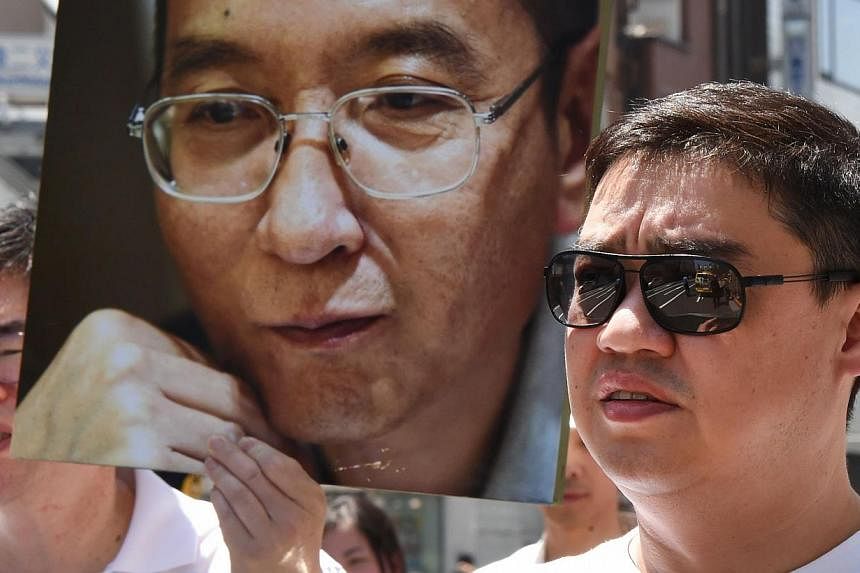WASHINGTON (AFP) - A street outside China's embassy in Washington moved a step closer to being renamed after jailed democracy campaigner Liu Xiaobo on Wednesday, despite angry warnings from Beijing.
The head of the US capital's council introduced a resolution to give the city's blessing to calls by lawmakers and activists to rechristen the street after the Nobel laureate in hopes of freeing him.
But Phil Mendelson's resolution said that the federal and not the local government had jurisdiction over International Place, where China and several other nations have built embassies.
He called for a vote by the US Congress, where the proposal enjoys support across party lines.
The resolution, which would still come up for a vote by the city council, credited a 1984 decision to rename the street outside the Soviet embassy after Andrei Sakharov with helping to win freedom of movement for the then-confined dissident.
Similar action in support of Liu "would send a clear and powerful message that the United States remains vigilant and resolute in its commitment to safeguard human rights around the globe, particularly at a time when the world community remembers the events of Tiananmen Square 25 years ago this month," the draft resolution said, referring to the deadly crackdown on pro-democracy student demonstrations.
Liu was sentenced in 2009 to 11 years in prison on subversion charges after he spearheaded Charter 08, a bold petition for democratic reforms in communist China.
Liu won the Nobel Peace Prize a year later, leading China to censor any mention of the award and to put his wife under house arrest.
After US lawmakers proposed the street renaming several weeks ago, a Chinese foreign ministry spokesman warned it would be a "provocative action" and called Liu "a man who has violated Chinese laws."
Mr David Keyes, executive director of the group Advancing Human Rights, said that he began pushing for the street move after a lunch discussion with Russian chess grandmaster and activist Garry Kasparov.
Mr Keyes said he was moved by a story of the Soviet Union's last leader Mikhail Gorbachev, who said that he heard so frequently on foreign visits about Natan Sharansky that he decided the price was too high to keep the activist in prison.
Renaming the street after Liu "would raise the price on China for imprisoning dissidents and democracy advocates like Liu Xiaobo," Keyes told AFP.
"It's symbolic and it may seem small, but if we can remind every Chinese diplomat around the world about the cost of their tyranny and if we can give hope to dissidents throughout China's prisons, I think it can play a significant role in pressuring China to release political prisoners and open up," he said.
The decision by Mr Mendelson to refer the issue to the US Congress highlights the unusual relationship between Washington and the federal government, which does not give the capital full democratic representation.
Ms Eleanor Holmes Norton, the District of Columbia's non-voting delegate in the House of Representatives, has joined both Republicans and fellow Democrats in supporting the renaming of the street for Liu.
Ms Norton in a statement said that the new name would allow Washington to point out "the hypocrisy of those in Congress who do not apply the same democratic goals to our own nation's capital that they demand of China."

